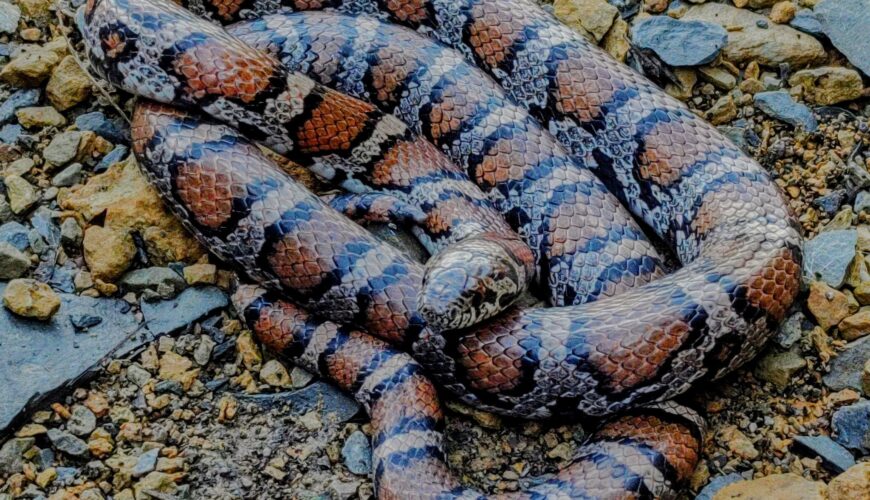Places
Pacific Fishing with Canada’s Serengeti Fishing Charters
January 12, 2026 •Brad Fenson
October 31, 2023
Love them or hate them, there are snakes—in our boots and in our woods, and especially on the east coast. Fort Knox’s fish and wildlife team recently shared a series of snake pictures taken during their most recent land survey for educational purposes to their Facebook page; iSportsman has gathered additional must-know information on these Kentucky snake species found at Fort Knox!

Venomous: No
Habitat: Open woodlands, bogs, swamps, marshes, lake shorelines, pastures, and gardens.
The above picture is a juvenile eastern milk snake, which tends to have brighter colors than adults. Adult milk snakes usually sport brown or reddish blotches edged in black against tan or gray coloring. Adult eastern milk snakes are usually 24-52” in length and juveniles are usually 6.6-11” at hatching.

Venomous: No
Habitat: Smooth earth snakes are fossorial, meaning they live underground. Most are spotted beneath logs, leaf litter, and other debris.
Earth snakes are some of the more interesting reptiles found in the eastern part of the U.S., with fossorial living habits that help sustain their diet of earthworms and soft-bodied insects. They are also viviparous, meaning they have live births. Earth snake birthing occurs in late summer, with births consisting of as many as 14 snakelets in a single nest.

Venomous: No
Habitat: Active almost exclusively during the day. Eggs most commonly laid beneath rotting logs and other debris.
Eastern Black King Snakes are believed to be immune, or at least resistant, to the venom of pit-vipers. This, coupled with their powerful constrictor capabilities, make these snakes known to consume some of the more unfriendly reptile species such as copperheads, cottonmouths, and rattlesnakes. Though black king snakes are harmless, they do sport a rattle which they will use to ward off intruders who happen upon their stomping (slithering) grounds.

Venomous: Yes; However, they are usually docile and only strike when something threatens them. More so, there is no record of a copperhead bite resulting in a human fatality.
Habitat: Found in hardwood and mixed hardwood-pine forests, pine woods, abandoned fields, swamps, marshes, woodpiles, and forested dunes near beaches, as well as around barns and houses in agricultural areas.
As part of the pit-viper family, which refers to the heat-sensing pit located between the eye and nostril that is used to aid in prey location, copperhead’s possess a pair of hollow fangs that rotate from a resting position to an erect position by the mechanical action of lowering the jaw. With a diet consisting of small mammals, eastern copperheads usually prefer ground-level hideouts but will swim when necessary.

Venomous: No
Habitat: Considered habitat generalists, southern black racer snakes can be found in virtually any habitat but can more often be found in forest edges, old fields, and wetland edges.
Unlike our friend the copperhead, southern black racer snakes are climbers and can sleep in hanging vegetation, small trees, and shrubs. Active only during daytime, and most active in warm weather, their diet consists of lizards, snakes, birds, rodents, and amphibians. Southern black racer snakes tend to flee when approached, though like most—if not all Kentucky snake species—they will attack on occasion if they feel trapped or threatened.
